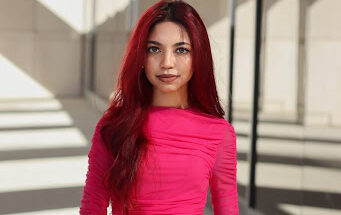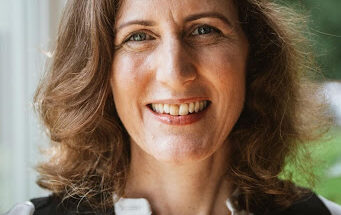BY NIKAYLA KIRCHNER, STAFF WRITER
ORGANIZATION: Urbanknowlogy
COULD YOU TELL ME A LITTLE ABOUT THE CLUB?
Urbanknowlogy is the first hip-hop dance group on campus. We were founded in 2005 by Terrence “TP” Polite, LaShonda Wilson and JayEll Vaugn, and it was meant for people who love and are passionate about dance. We do competitions around the DMV area and on-campus. Our on-campus performances include Mason Madness, basketball game halftime shows, Mason Day, Spring Preview and other local club, organization events. Outside of campus, we compete in the International Week dance competition (where we won second place), the East Coast Dance Competition, the Slam Dance competition in Baltimore and many other showcases. Make sure to look out for us at the spring Homecoming this year.
WHAT MADE YOU WANT TO START DANCING FOR URBANKNOWLOGY?
I’ve been dancing my entire life and my grandma actually owned a dance studio in the Philadelphia area where I’m from. So I grew up around dance from the time I was crawling. I would watch my mom and my cousins in the studio all the time, so it’s pretty much embedded in my genes. It’s like a part of me. My grandma and my family basically set up this great place for us to grow and to dance and to express ourselves.
HOW DO YOU THINK URBANKNOWLOGY HAS IMPACTED MASON AND THE ARTS?
I feel like Urbanknowlogy has been a very influential arts program on campus in terms of showing Mason pride, and in bringing Mason together as a community. But at the same time, we are more than just “Mason.” I feel like we also have this connection to the arts outside of campus, as though we combine artistic vision in real dance with the pride of Mason, almost like a crossroad between including other dance teams outside of campus while also doing events just for Mason pride.
WHAT DO YOU THINK IS THE MOST IMPORTANT THING ABOUT DANCE OR THE ARTS IN GENERAL?
For me personally, it’s all about expression. It’s an outlet that allows people to express how they feel, how they want to feel and the things that they usually won’t allow themselves to feel in a healthy, coping manner. Dance is expression just like any other art, used to tell and show people how you feel, and that’s one of the biggest things about dance. It tells a story and it allows for emotion.
FACULTY: Angela Hattery
WHAT SPARKED YOUR PASSION TO STUDY, RESEARCH, AND EXPLORE GENDER AND RACE RELATIONS
I always knew I was a feminist, but I didn’t always know the language until I went to college. I always knew the boys were getting the opportunities that I wasn’t getting, and I always knew inequality was wrong, but I just didn’t understand how it got that way. So, pretty much my whole life has been about trying to understand and use that knowledge to impact social inequality in real ways. Some people become social workers, others find Black Lives Matter, but I’m a professor. I do the work on a college campus. I think that was where my enlightenment happened, around after I found the power in education.
COULD YOU TELL ME A LITTLE ABOUT YOUR PAST AND CURRENT PROJECTS?
My current research is a project around studying ethnography around people living and working in solitary confinement. I am particularly interested in the way in which we build prisons in rural white communities but fill them up with urban black bodies, specifically in relation to how this shapes race relations within the prisons and the community itself. I am also continuing my research on how black bodies are policed, formally and informally, and the policing of black women’s bodies, as well as continuing my long-standing research on sexual and intimate partner violence.
HOW HAS YOUR RESEARCH ON RACE AND GENDER STUDIES IMPACTED THE MASON COMMUNITY?
I believe that my research has provided space for critical conversations on campus. Some conversations occur in the classroom, where students have the opportunity to learn how to talk to each other about difficult topics and become adept to discussing the things people don’t necessarily want to talk about. But, I feel like the greatest impact has been through my teaching. By teaching these types of classes, I am educating the people who will eventually leave the university and bring my work into their own work. They become alumni who become leaders in their communities, and who can have these tough conversations in what they’re doing. I think the greatest gift and power has been within the students who take what I teach and transform the world.
WHAT CAN WE EXPECT NEXT FROM YOU?
I am super excited to be teaching my first Honors College course in the spring semester called Policing Black Bodies, and bringing my research into a new part of the university. Expect big things. The sky’s the limit.
WHY DO YOU THINK RESEARCH IS SO IMPORTANT TO MASON CULTURE?
I think research is super important because all of us can look at the world and make assumptions about what we think is going on, but research keeps us honest. Research helps us figure out if what we see is actually happening and disrupts our assumptions about the world. Research debunks any myths and misbeliefs we might have about the world using data and numbers, saying, “Well, actually this is what it really is.” It’s honestly the best tool we have. It’s critical to Mason culture, and students should be involved in it from the very beginning.





